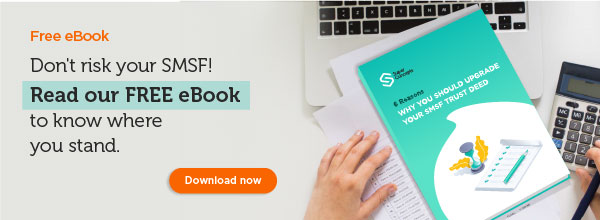
By Philip La Greca
Executive Manager, SMSF Technical & Strategic Services
.png?sfvrsn=2e1aabc4_0)
"If a tree falls in a forest and nobody hears it, did it really fall?" or if a trustee makes a decision and doesn't write it down, did it really happen?
One of the things that we get asked about quite consistently is when should a trustee document a decision? This usually arises when a trustee wants to do something and is unsure if they need to minute it. As usual with most things SMSF, the answer to this question is that it depends.
There are two issues here: Firstly, how do I document a decision? and secondly, what decisions do I need to document? I’m going to talk about both matters here.
When determining how a decision is documented, we first need to consider what type of trustee structure exists because this will tell us predominantly what documents will govern the rules of decision-making.
If there is a corporate trustee, then the starting point will be the company's constitution. This document will outline arrange of steps necessary to decide that decision. This can occur either at a meeting of directors or by passing a resolution.
The guiding document will be the fund's trust deed if the fund has individual trustees. Again, this document will provide instruction on whether decisions are dealt with at a meeting of trustees only or can be by passing a trustee circular resolution.
There are some critical differences between these two potential methods, and we will look at the key issues for these methods.
So, let's start with meetings of trustees and directors. Now the proof of these meetings is, of course, the minutes of the meeting, so what does a minute of a meeting mean? The minute of a meeting acts as a record of an event that occurred and documents the relevant issues of that event, namely who was at the meeting, when did it take place, what was decided at that meeting and finally, a formal sign-off by the chairman that the information in the document is true and correct.
So how do we hold a meeting?
• some meetings require an advance notice period, such as annual general meetings, but that doesn't mean that some meetings cannot be called without notice,
• you need to determine who attended the meeting versus who was eligible to attend,
• were there sufficient people at the meeting to allow a decision to be made, we need a quorum. If there are insufficient people at the meeting to form a quorum, then the meeting cannot make any decisions, and
• the final element is what items are raised, discussed and decisions made.
All of which will be documented within minutes.
Now the alternative is the use of a resolution, sometimes referred to as a circular resolution. The key difference with these is that there is no requirement for a gathering of the relevant parties to occur; instead, a document defining the recommended decision/s (resolution) to be made is circulated to all the trustees or trustee directors for approval.
• Each party does not need to sign the same document but can sign a separate version of the document, meaning that they do not need to be all together at the same time.
• The effective date of the resolution is the latest date at one of the required parties signed the resolution.
• All the signed resolutions from all the relevant parties are required to be kept.
So, the most significant difference is that minutes require a meeting to occur, and at least a certain number of people must attend. In contrast, circular resolutions do not require a gathering but generally need all parties to agree and confirm the decision.
This brings us to the second question, when do trustees need to document decisions by either method? I'll answer this question in my next blog.
Stay connected with SuperConcepts

Wondering whether your SMSF Trust Deed needs an update?

This eBook, written by one of Australia's most trusted SMSF experts, Graeme Colley, uncovers 6 reasons why you should update your trust deed.
To learn more about how our range of SMSF services phone us on 1300 023 170 or request a call back.
Alternatively click through to view our range of services for trustees, accountants and advisers.

.png?sfvrsn=2e1aabc4_0)

